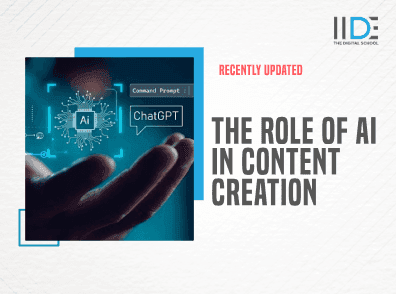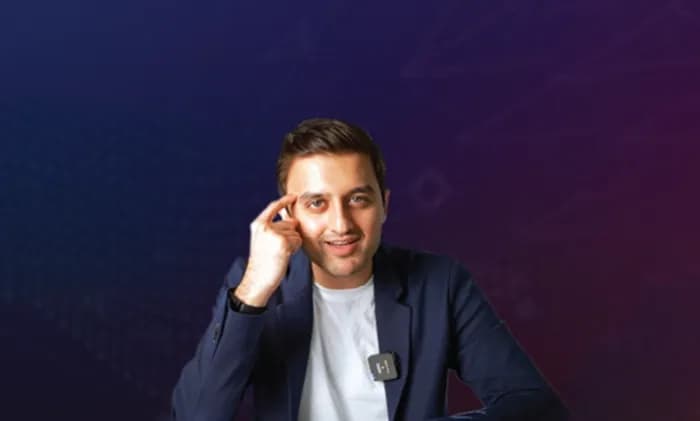
AI in Content Creation: Transforming Content Creation in 2026
AI in content creation harnesses artificial intelligence (AI) to generate, optimise, and automate the production of various content types, including written, visual, and audio materials.
By leveraging machine learning algorithms, these tools can draft articles, produce images from text prompts, and analyse data to enhance content performance.
This technology enables human creators to focus on strategic planning, creative development, and other critical tasks, thereby elevating the overall content creation process.

Top 8 Benefits of Freelance Digital Marketing Jobs
In this blog, we’ll be looking at the benefits of freelance digital marketing jobs and why it is the best career choice in 202 and beyond.
For those who are willing to shift their career to digital marketing, now is the right time! With the advancement in technology and globalization, the freelance market is booming with each passing day and there’s no denying the fact that the scope of digital marketing in freelancing seems pretty bright. Creators and successful freelancers like Saheli Chatterjee and Shreya Pattar have marked their presence with their impeccable talent giving rise to the demand for digital marketing freelancers.
With this article, we aim to make you understand the scope of digital marketing in freelancing, is digital marketing good for freelancing, top digital marketing freelance jobs, and the benefits of freelance digital marketing jobs.
So without wasting much time, let’s jump into the blog.
Must Read: Scope of Digital Marketing 2023 – Covid Updated
What is Freelance Digital Marketing?
As a freelance digital marketer, you have to simply assist companies and clients in selling their products and services online. Your job would be to contact your target audience, direct them to their website, and convert them into paying clients. All of this without being a full-time employee of the company!
But a question must appear in everybody’s mind “Is digital marketing good for freelancing?”
The answer is a big YES! Freelancing in digital marketing is an amazing career opportunity for an individual who has an interest in the field of digital marketing and for those who want to make their career in the field of digital marketing.
Bonus tip: If you want to pursue a thriving career in digital marketing, an MBA in Digital Marketing can be a great option for you as it provides you with a competitive edge by equipping you with comprehensive knowledge and strategic skills to excel in this rapidly evolving field. It combines the best of business management principles with specialized expertise in digital marketing, empowering you to confidently lead and innovate in the digital landscape.
If you wish to find out the salaries of freelance digital marketing jobs and how to become a freelancer, then read our ultimate guide on freelance digital marketing jobs.
Let’s proceed with learning the benefits of freelance digital marketing jobs now.

AI in Digital Marketing 2026: Transforming Strategy, Creativity & Careers
In today’s 2026 digital marketing landscape, AI is revolutionizing how brands connect with consumers by powering advanced predictive analytics, real-time personalization, and automated campaign management. It enables marketers to anticipate customer needs, optimize budgets dynamically, and deliver hyper-targeted content across multiple channels.
From AI-driven chatbots providing 24/7 customer support to generative AI tools creating optimized content and automating ad placements, AI accelerates efficiency while enhancing user engagement and ROI. This broad scope of digital marketing application allows professionals to focus more on strategic creativity and insights, equipping them with a competitive advantage in a rapidly evolving marketplace.
Kartik Mittal
3,567 views
Latest Blogs
Trending Topics

9 Best Copywriting Courses in Delhi 2026 - Fees, Certification & Career Scope
IIDE - The Digital Business School, Delhi School of Communication and Henry Harvin are some of the finest institutes offering the best copywriting courses in Delhi. These courses are designed to bridge the gap between creative writing and strategic marketing through a hands-on approach. Students typically engage in live industry projects, case studies, and portfolio-building exercises.
Beyond just writing, the curriculum covers essential digital skills like SEO integration, psychological triggers, and AIDA-based frameworks. This blend of practical exposure and expert mentorship ensures that learners are industry-ready to craft high-converting copy across various digital platforms.
Kartik Mittal
8,451 views

BBA in Digital Marketing Colleges in Thane: Your Complete 2026 Guide to Fees, Admissions & Placements
Looking to pursue BBA in Digital Marketing in Thane? You're in the right place. Thane, a thriving educational hub just next to Mumbai, offers access to India's digital marketing powerhouse while keeping costs reasonable.
Colleges like IIDE, ITM Business School, and IMS Thane offer BBA programs with Digital Marketing specializations or related courses in Thane region. Average fees range from ₹1 lakhs to ₹4 lakhs for the complete three-year program, depending on whether you choose government-affiliated or private institutions. Average placement rates hover between 60-80%, with starting salaries typically ranging from ₹3-6 lakhs per annum.
But here's the question: why settle for traditional BBA when you can explore specialized programs like IIDE's Undergraduate Program in Digital Business & Entrepreneurship that combine academics with real-world digital skills? Let's explore what makes Thane an ideal destination for your digital marketing education.

Top High-Paying Professional Courses in India for 2026
In 2026, the job market is all about what you can actually do on day one. Some of the top professional courses in India are now found in fields like AI, Data Science, and digital strategy, where salaries are hitting new highs. These are the highest-paying professional courses in India, perfect if you want to skip the fluff and get straight to work.
If you're just starting after school or looking to level up after college, choose your path below to find the best professional courses after 12th or after graduation.

9 Free Digital Marketing Courses in Delhi 2026: Institutes & Certifications
The top institutes for free digital marketing courses in Delhi are IIDE, Skill India Digital, and NIELIT, each offering high-quality introductory modules and certifications. These courses typically cover essential subjects like SEO, Social Media Marketing, Google Ads, and Content Strategy.
Most programs are available in online or hybrid modes, making them accessible to students, working professionals, and small business owners alike. There are no strict eligibility barriers beyond basic computer literacy, so anyone looking to upskill can start immediately.

21 Best Digital Marketing Courses & Certifications in 2026: Free & Paid Courses & Certifications
In 2026, Best Digital Marketing Courses are the one which integrate AI, Data Analytics & hands-on, project-based learning in their curriculum/syllabus. Amongst the Top Digital marketing courses, IIDE - The Digital Business School stands at the top follwowed by, Udemy, Hubspot Academy, and DG Mark for top options for digital marketing courses in 2026, covering everything from beginner‑friendly foundations to advanced executive‑level programs.
These institutes offer flexible online and offline learning, live projects, and strong placement or career support. Course fees typically start from approximately ₹10,000 to over ₹5,00,000 for entry‑level certificates and go up to around ₹6,00,000 - 7,00,000 for intensive post‑graduate or executive programmes. Many institutes offer free digital marketing courses.
Kartik Mittal
9,657 views

9 Free Digital Marketing Courses in Mumbai 2026: Institutes & Certifications
Looking for the best free digital marketing courses in Mumbai? You can kickstart your career today with top-tier institutes like IIDE, Digital Gurukul, DMTI, and Digital Scholar. Global leaders like Google Digital Garage, HubSpot Academy, Simplilearn, and UpGrad offer high-quality modules covering SEO, Social Media, and Performance Marketing. You can also earn a recognized free digital marketing certification in Mumbai through the government-backed Skill India Digital Hub.
These digital marketing courses in Mumbai are open to students, professionals, and entrepreneurs, focusing on practical subjects like AI-driven content and web analytics. This guide ensures you gain industry-ready skills without the heavy price tag.
Confused about which Digital Marketing Course is Right for You?

Explore Our FREE Digital Marketing Masterclasses
Taught by industry experts, these free digital marketing courses are your gateway to exploring exciting topics and expanding your expertise at your own pace.











